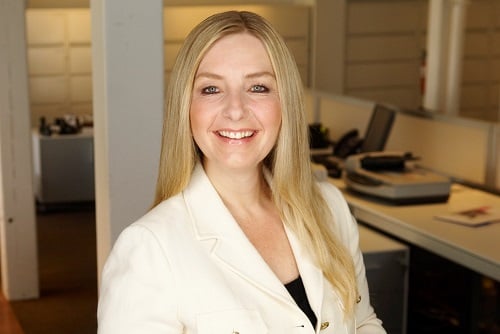Kathy Gregory is the brash, hardnosed CEO of Paradigm Quest, and as successful as her firm has become since launching 14 years ago, she’s quick to share credit.

Kathy Gregory is the brash, hardnosed CEO of Paradigm Quest, and as successful as her firm has become since launching 14 years ago, she’s quick to share credit.
Noting that most entrepreneurs run failed ventures—in 10 years, up to 70% flop, according to Gregory—she says the way to buck the trend is by surrounding oneself with bright minds armed with an array of character traits.
“The challenge with starting a company is you don’t know what will go wrong, and what you think will go wrong probably won’t and you’ll be hit out of left field,” said Gregory. “So surround yourself with people who don’t look, sound or smell like you. They have to be different. Surround yourself with really brilliant people with different skill sets but operate as a team.”
Gregory is known to pull nary a punch but when it comes to dissecting Paradigm Quest’s success, she speaks glowingly of the company’s staff.
“Sure, at the end of the day, the CEO makes the final decision but he or she better make it with the best information from different skill sets. We drive this ship together. I may get most of the accolades, but it’s owed to a bunch of people.”
Gregory has had a decorated career, including years of experience at banks, where she realized the virtue of their conservatism. When she launched Paradigm Quest in 2005, lessons from the banking world helped her steer the incipient company towards $1.5 billion in originations during its inaugural year. By the end of its third year, Paradigm Quest had $5b of assets under management.
“We broke even our first year,” said Gregory. “The banking background changes you into a conservative planner. But we overachieved.”
Today Paradigm Quest has positioned itself as one of Canada’s leading mortgage processors, and Gregory admits that growing the firm into the juggernaut it is today hasn’t been without its sacrifices.
“I don’t even know what work-life balance means. It’s hard for anybody professionally to work hard and be passionate about their role. I was single and raised my kids alone. But Wednesday is family day for us, and my kids know there are going to be a lot of dinners and travel so not to schedule anything on that day. Our Wednesday family day is not negotiable 90% of the time, and my kids like that. They like to have that structure that mom is coming home on Wednesday. It’s a day where we put down the phone down and don’t watch TV. We’ve done it for 20 years. Everyone at works knows not to schedule any client dinners on Wednesdays. It’s the indication to my family that it’s our time that matters.”



